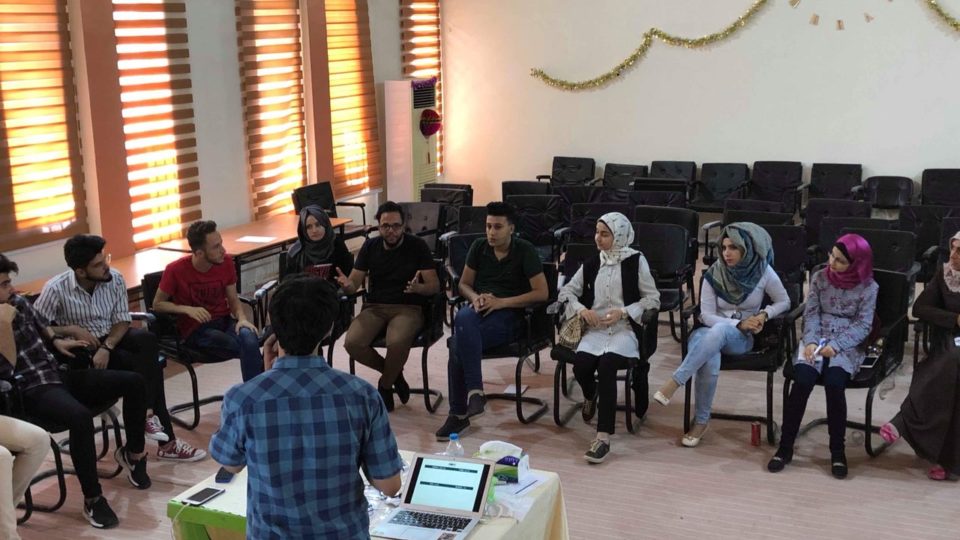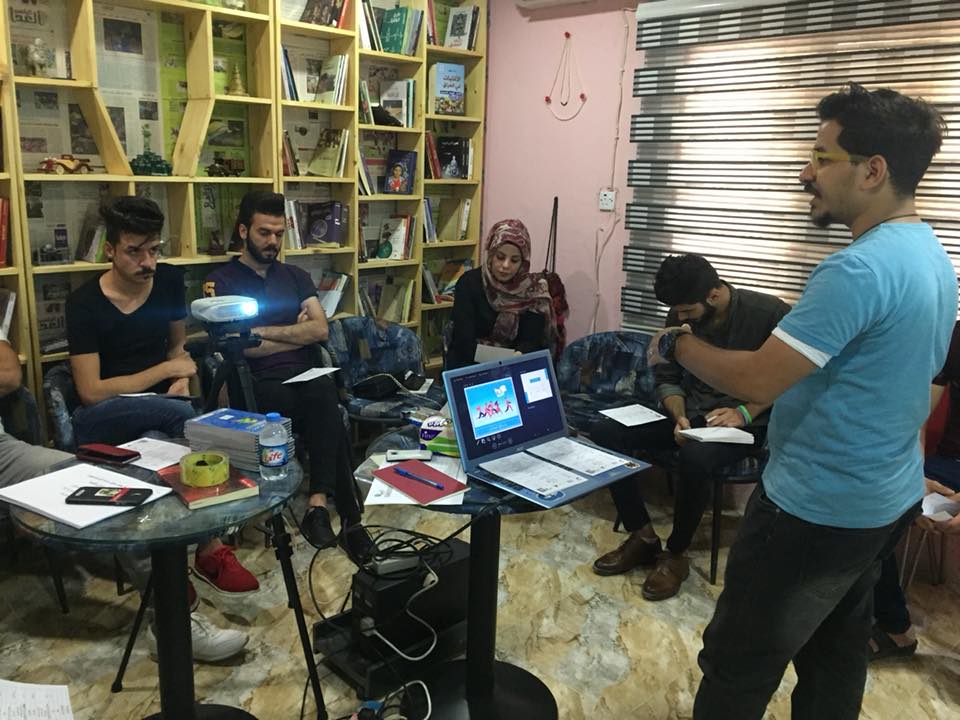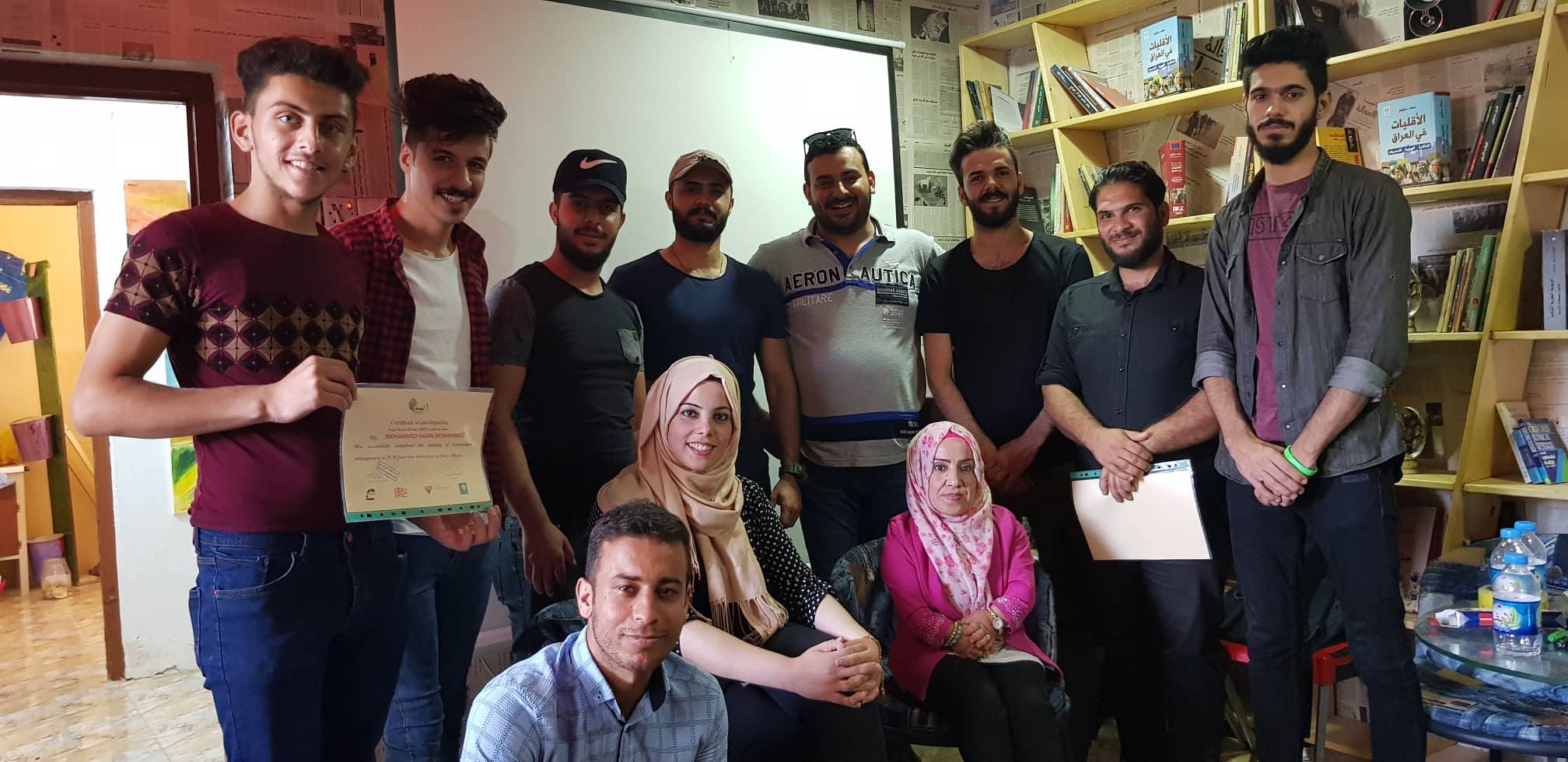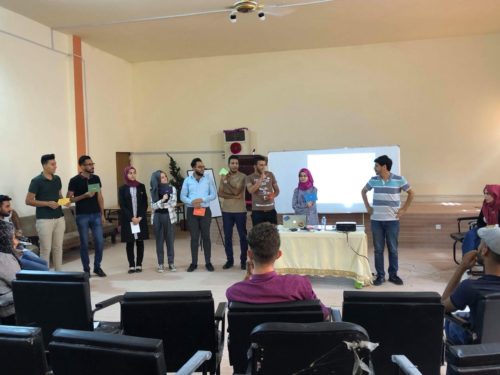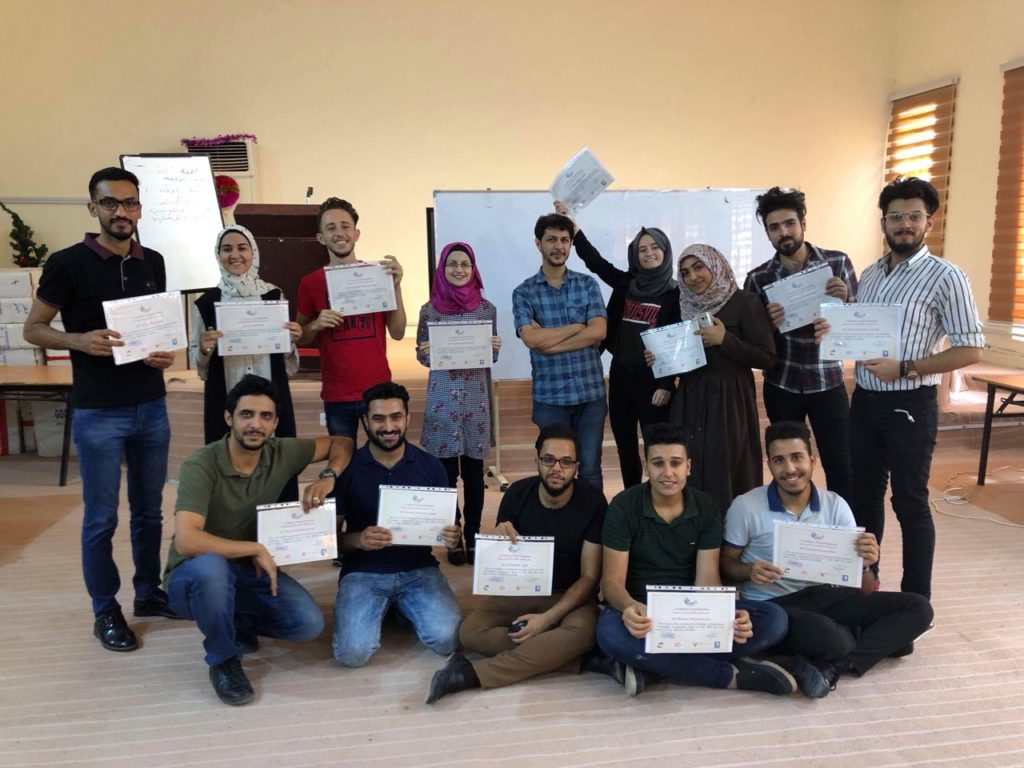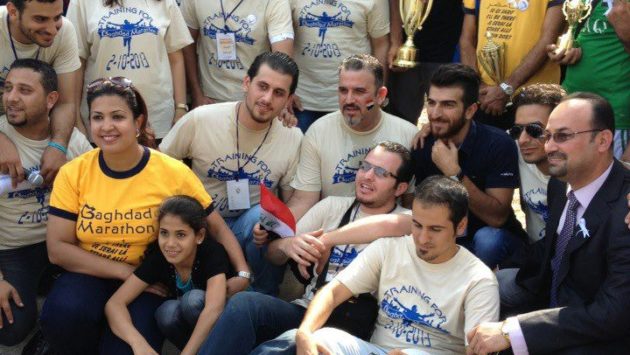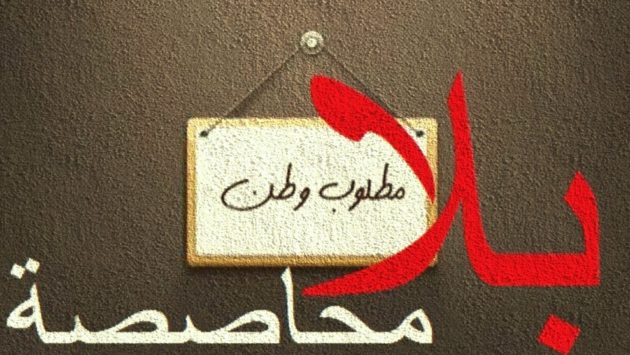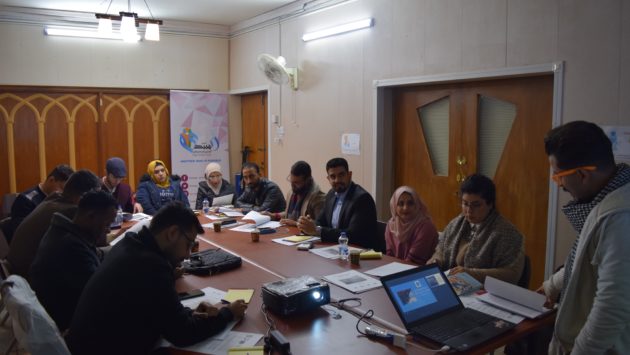Local Forums Across Iraq Reveal a Strong and Growing Youth Movement
Over the past year, the Iraqi Social Forum has become a model for smaller local forums springing up throughout the country. These local forums galvanize and train young activists to work inclusively and nonviolently to create a better Iraq, one based on the values of peace and social cohesion.These values, which became dormant under the weight of unwanted war and violent extremism, are reemerging with increasing strength and vitality as young Iraqis work to implement campaigns and put on events which are creating a new future for Iraq.
Two trainings were recently held in Diyala and Babylon to help further this goal by preparing young activists to become effective agents for positive change. Both trainings drew on the knowledge of the participants themselves — after all, as local residents, they are in a unique position to identify the most pressing issues facing their communities and to come up with realistic ideas of how they might be resolved.
The training in Diyala, on 30 June, was attended by 11 young men and women, and began with a brainstorming session about what they saw as the most urgent problems in the province today. Three critical issues were identified: 1.) stopping the continued pollution of the Khresan River which is having devastating effects on residents and the environment; 2.) taking a stand against the harassment of women who work in the private sector in Baquba city; and 3.) preventing the dredging of farmland in Baquba city to construct more housing. Participants then divided into groups and worked on possible solutions to each problem. For instance, the group considering the dredging of farmlands in Baquba acknowledged the need for more housing given an increasing population, but proposed using unproductive land for the construction of residential buildings rather than vital farmlands necessary for food and commerce. Those considering the pollution of the Khresan river identified garbage from cafes along it as a major contributing factor. Priority was then given to determine strategies to manage the cafe trash.
At the end of the training, each participant received a certificate and together they decided to form a coordinating committee that will act as the core of their new local forum. The committee will prioritize and organize its future activities.
In Babylon, on 6-7 July, 9 youth activists came together to learn about planning and implementing nonviolent campaigns aimed at resolving local problems. As in Diyala, the training did not take the form of a passive lecture, but gave the participants an active role in identifying and thinking about how to tackle the problems around them. This engagement allowed the young men and women taking part to draw on their own knowledge and experience so that it could be channeled to help improve their communities. The two main issues that came up had to do with the need to preserve the rich heritage of the city, both archaeological and natural. Participants started to develop campaigns which will help to improve the administration of historical sites and raise public awareness about environmental issues and place pressure on local government to take action.
Both trainings come within a wider program for social cohesion called ‘Paths of Coexistence in Mesopotamia’, supported by the Swiss FAI Organization, in partnership with the Iraqi Civil Society Solidarity Initiative, the Italian organization, Un Ponte Per, and the Information Center for Research and Development, with support from CCFD french organisation. This program aims to spread and strengthen the core values and principles of the Iraqi Social Forum by establishing local forums in number of Iraqi cities which support social cohesion and peace-building.

